Table of contents
Irene Käosaar: The trend in integration policy is to talk to people
Almost 2100 people attending Estonian language courses to learn and practise the language this year
It is never too late to start learning a language – and right now is no exception!
Range of resources released with which to practise Estonian
Integration Foundation publishes ‘Coming Back in 2021’ handbook on returning to Estonia
Online Citizen’s Day quiz to be held from 15-28 November
Cooperation Days generate ideas on getting young people involved in activities
Estonian-language teachers from Ida-Viru County to take part in Merle Karusoo’s play ‘Who Am I?’
Language-learners ‘gift-rap’ their birthday present for the Estonian Language Centre in Narva
Calls for tenders and proposals
Irene Käosaar: The trend in integration policy is to talk to people
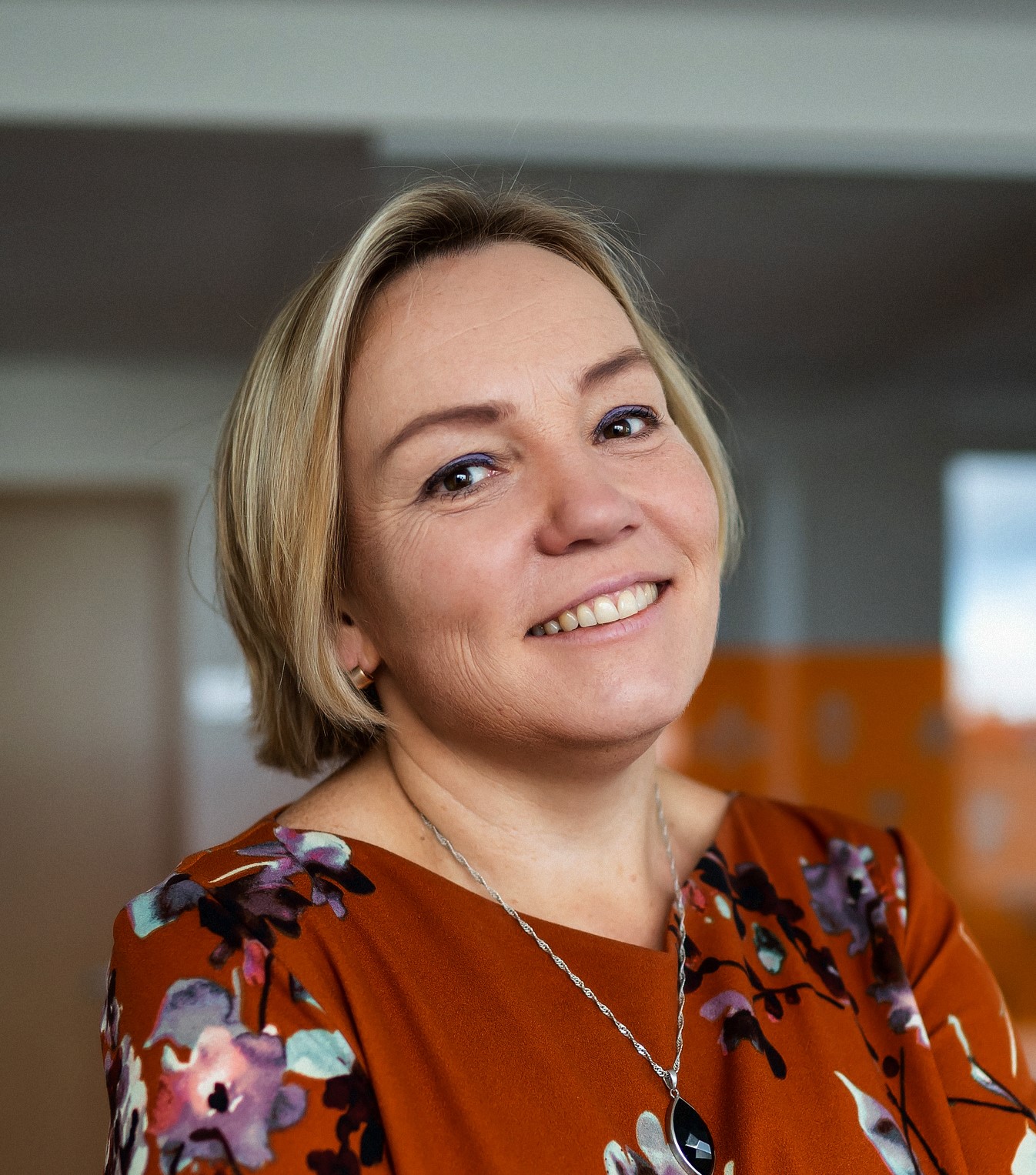 Back in summer, on the 20th of August, we celebrated the 30th anniversary of the restoration of Estonia’s independence with a song festival in Narva. For the last three decades we have been working to drive Estonian society forward, fashion its values and support its democratic processes. Part of that is shaping integration policy, which is closely linked to social processes, being helped or hindered by them on the one hand and contributing to the formation of a more cohesive society on the other.
Back in summer, on the 20th of August, we celebrated the 30th anniversary of the restoration of Estonia’s independence with a song festival in Narva. For the last three decades we have been working to drive Estonian society forward, fashion its values and support its democratic processes. Part of that is shaping integration policy, which is closely linked to social processes, being helped or hindered by them on the one hand and contributing to the formation of a more cohesive society on the other.
A lot has changed in the last 30 years: the emphasis in integration policy has shifted from language-learning and citizenship issues to the moulding of shared values and working together. Of course, skills in Estonian and its use as a common language remain as important as ever, but learning it is no longer so much an end in itself but a means to an end – a bridge between cultural spaces in society.
There has been a marked shift in people’s attitudes towards Estonian and studies of the language: there are no longer arguments about whether the national language needs to be learned or whether the education system should be at least partially in Estonian for all learners. The main issue today is how to go about this in such a way that the quality of education is guaranteed and that interaction between youngsters from different cultural and linguistic backgrounds is supported.
The success of language studies largely depends, as it always has, on people’s motivation, which is why national programmes are increasingly focussed on the learners themselves, placing their needs front and centre. If a person needs Estonian to get on professionally, it makes sense for them to study the language from that perspective. If they need it to get by more effectively in their personal or social lives, often the best way of helping them is to direct them to our language cafés and language and culture clubs. In order to support this approach, a consultation system has been set up that helps chart people’s needs so as to offer them the right kind of studies.
The trend in integration policy is getting closer to people and talking to them. We have built up a strong country over the last 30 years; a lot of the decisions that have been made in the field of integration were the right ones at the time. Now we have reached a point where we no longer need to worry as much about the long-term future of Estonia – instead, we can be guided primarily by human values in supporting a more cohesive society.
Integration Foundation to organise ‘30 Years of Integration’ conference in Tallinn on 11 & 12 November
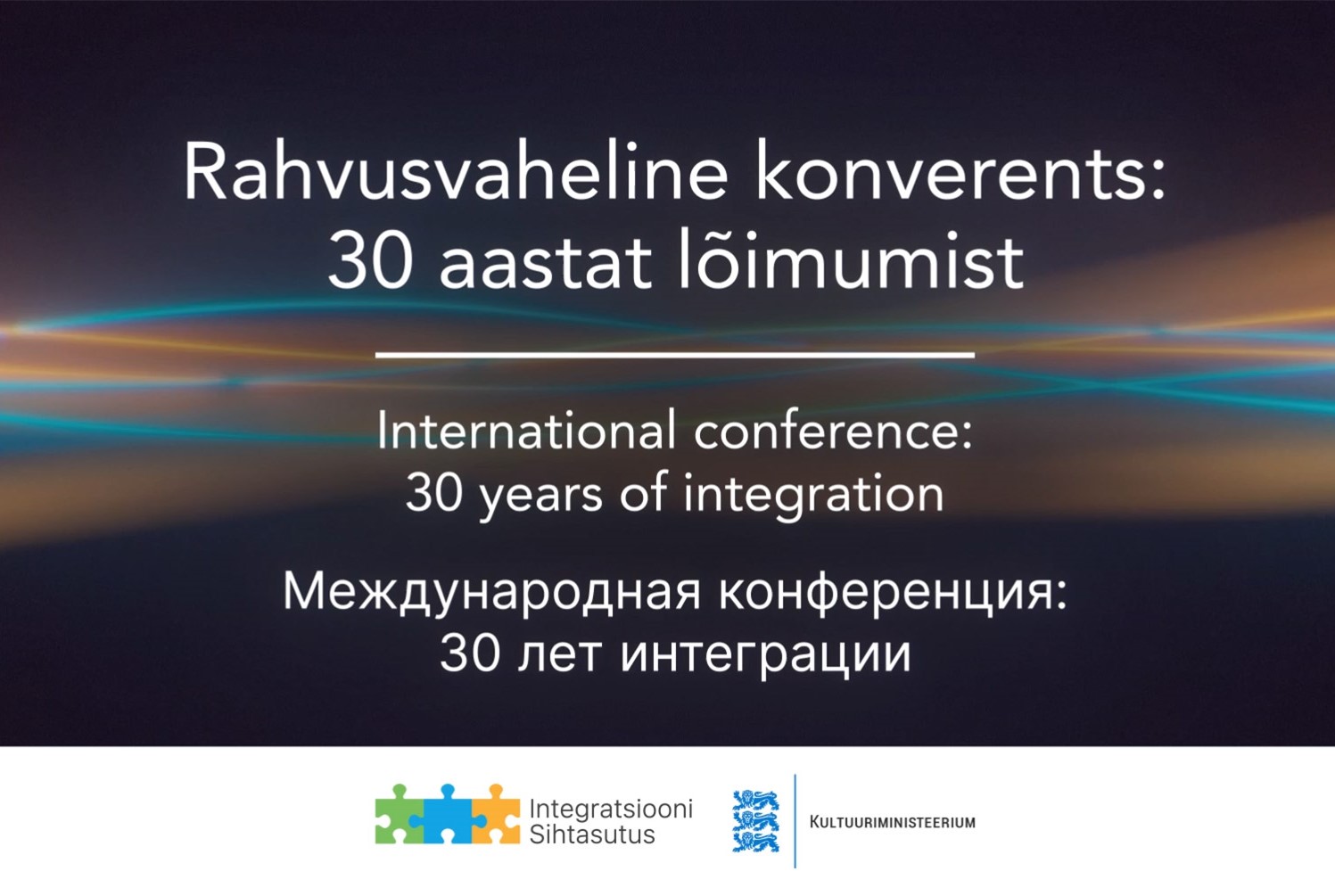 The event will bring together internationally recognised experts from Finland, Latvia, Lithuania, the United Kingdom, Germany, Austria, Switzerland and of course Estonia. The conference will be livestreamed on the integrationconference.ee website.
The event will bring together internationally recognised experts from Finland, Latvia, Lithuania, the United Kingdom, Germany, Austria, Switzerland and of course Estonia. The conference will be livestreamed on the integrationconference.ee website.
The two-day conference will include speeches and discussions in which experts, researchers, policy-shapers and representatives of civil society organisations will be analysing the integration processes implemented in Estonia and other countries over the last 30 years, summarising achievements and setbacks and discussing what still needs to be done to foster a more cohesive society.
Information about the programme, speakers and registration can be found on the event’s website at integrationconference.ee. The event will be livestreamed on the site. Registration to attend the conference in person is open until 1 November.
We invite people with undetermined citizenship to take part in a series of events in Tallinn and Ida-Viru County
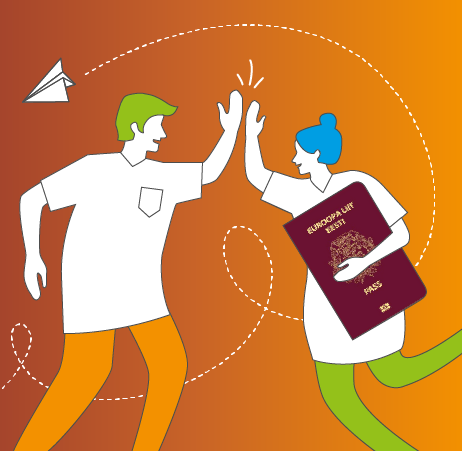 At the meetings, we introduce the possibilities of acquiring citizenship, discuss obstacles and advantages, visit the Riigikogu, share detailed information on what to do to apply for citizenship and give advice on how to prepare for exams.
At the meetings, we introduce the possibilities of acquiring citizenship, discuss obstacles and advantages, visit the Riigikogu, share detailed information on what to do to apply for citizenship and give advice on how to prepare for exams.
Activities take place from October to December 2021, mainly in Estonian language houses in Tallinn and Narva, but we also make various trips. Each person can participate in all events or choose the most interesting ones.
The entire programme in both Tallinn and Ida-Viru County is in Russian or has been translated into the language and is free of charge. You can join at any time.
Almost 2100 people attending Estonian language courses to learn and practise the language this year
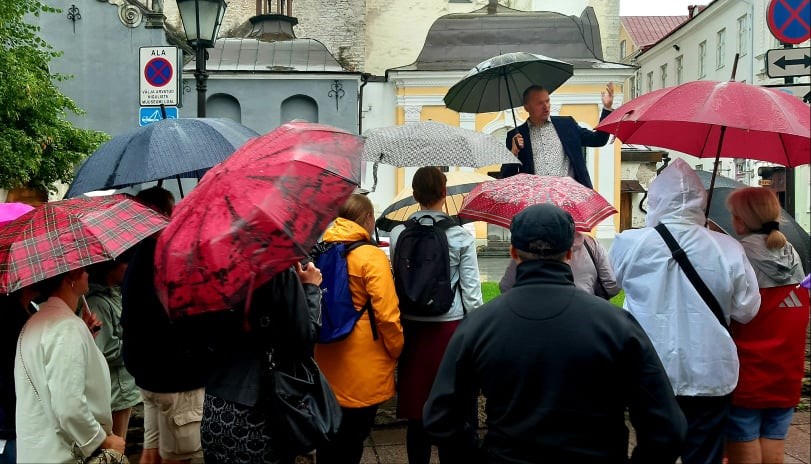 The academic year has gotten off to a flying start in the Integration Foundation’s partner schools and at the Estonian Language Centres in Tallinn and Narva.
The academic year has gotten off to a flying start in the Integration Foundation’s partner schools and at the Estonian Language Centres in Tallinn and Narva.
It was a busy and creative start to the autumn season in Narva, where 13 groups (three of them online) opened at the A1-C1 levels in September, taking in 203 students. Five skills courses with 108 places were also launched in a completely new format to focus on specific aspects of Estonian language and culture over a longer period.
The Estonian Language Centre in Narva is continuing to work with the city’s central library to organise conversation classes for its 17 staff members, during which interesting discussions are led by teachers of Estonian. Along with other activities supporting language-learning, the centre also worked with the organisers of the Matsalu Film Festival to offer 138 residents of Narva the chance to enjoy competing entries from the festival.
The academic year has also gotten off to a fun and flying start at the Estonian Language Centre in Tallinn, where 18 groups with almost 300 students have dived into courses at the A1-B2 levels. Since life these days is much more dynamic than it used to be, these courses are also being offered either in person or online. Making sure they fit in with the day-to-day lives of the students is a top priority, since studies only truly pay off when they are interesting and can be undertaken in a format and at a time that suit the learner. A total of 12 face-to-face and six online courses have been launched this autumn, the latter attracting participants from the Sõrve peninsula on the island of Saaremaa all the way to Georgia!
International Teachers Day was marked at the Estonian Language Centres in both Tallinn and Narva in October with the poetry of Doris Kareva, activities linked to Adult Learners Week and events forming part of Estonian Language Week organised by the Estonian Institute.
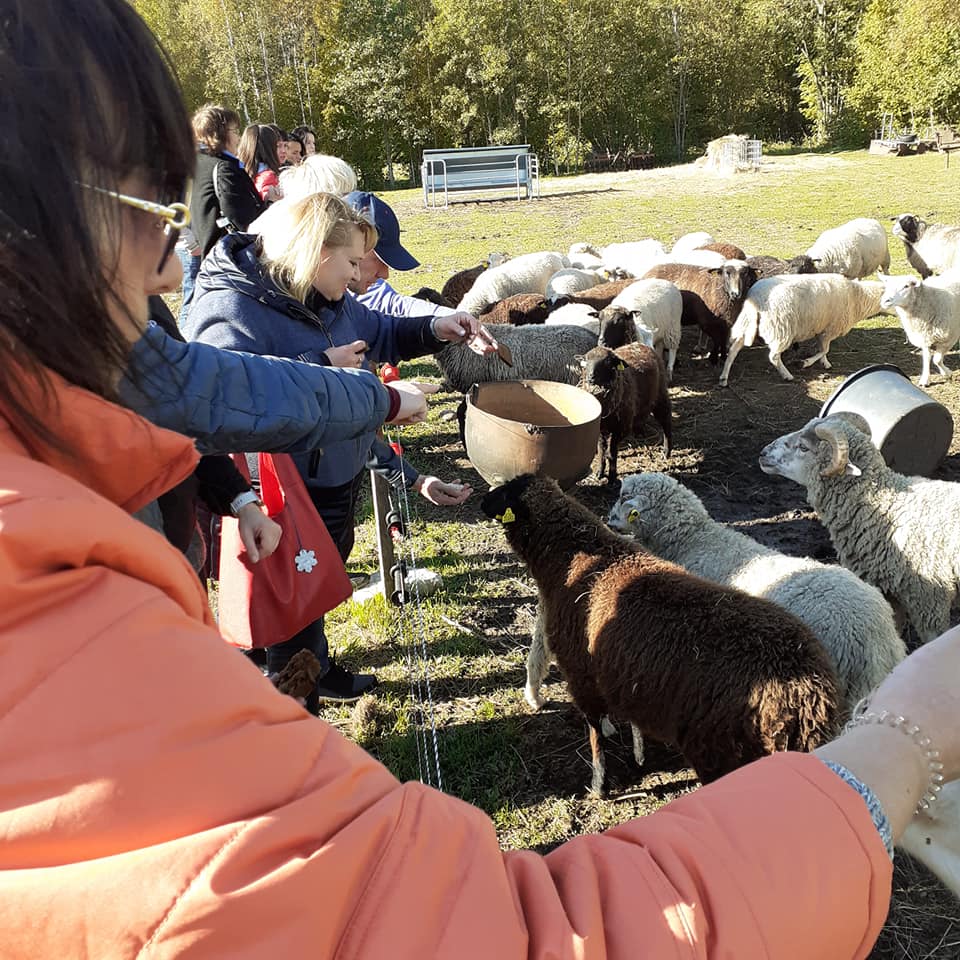 The Integration Foundation also supports employers in organising language studies. A good example is a follow-up course that was organised by the Police and Border Guard Board and the Estonian Language Centre in Narva on which police officers got the chance to study Estonian face-to-face on police premises as well as online and at a language camp held on Saaremaa this autumn.
The Integration Foundation also supports employers in organising language studies. A good example is a follow-up course that was organised by the Police and Border Guard Board and the Estonian Language Centre in Narva on which police officers got the chance to study Estonian face-to-face on police premises as well as online and at a language camp held on Saaremaa this autumn.
The Integration Foundation also offers Estonian courses for adults at the A1-C1 levels through its partner schools (Algus OÜ, Kersti Võlu Koolituskeskus OÜ, Multilingua Keelekeskus OÜ, Immischool – Uusimmigrantide Koolituskeskus MTÜ and Folkuniversitetet Estonia MTÜ), at which a total of 1568 took up studies of the national language in September and October.
Teachers from Algus OÜ are running courses within the framework of the AMIF2020-8 project ‘Estonian language studies for third-country citizens in Estonia’, with 129 people starting on courses at the B1 level in September.
In order to ensure the quality of language studies, the University of Tartu was commissioned by the Ministry of Culture and worked with the Integration Foundation to train 25 language-school teachers of adults over three sessions in 2021. Follow-up training on the development of the teaching of Estonian as a second language was also provided in a conference format at the end of September to all those who had completed the University of Tartu training. Teachers from the Estonian Language Centres of the Integration Foundation and its partner schools took part in the event.
It is never too late to start learning a language – and right now is no exception!
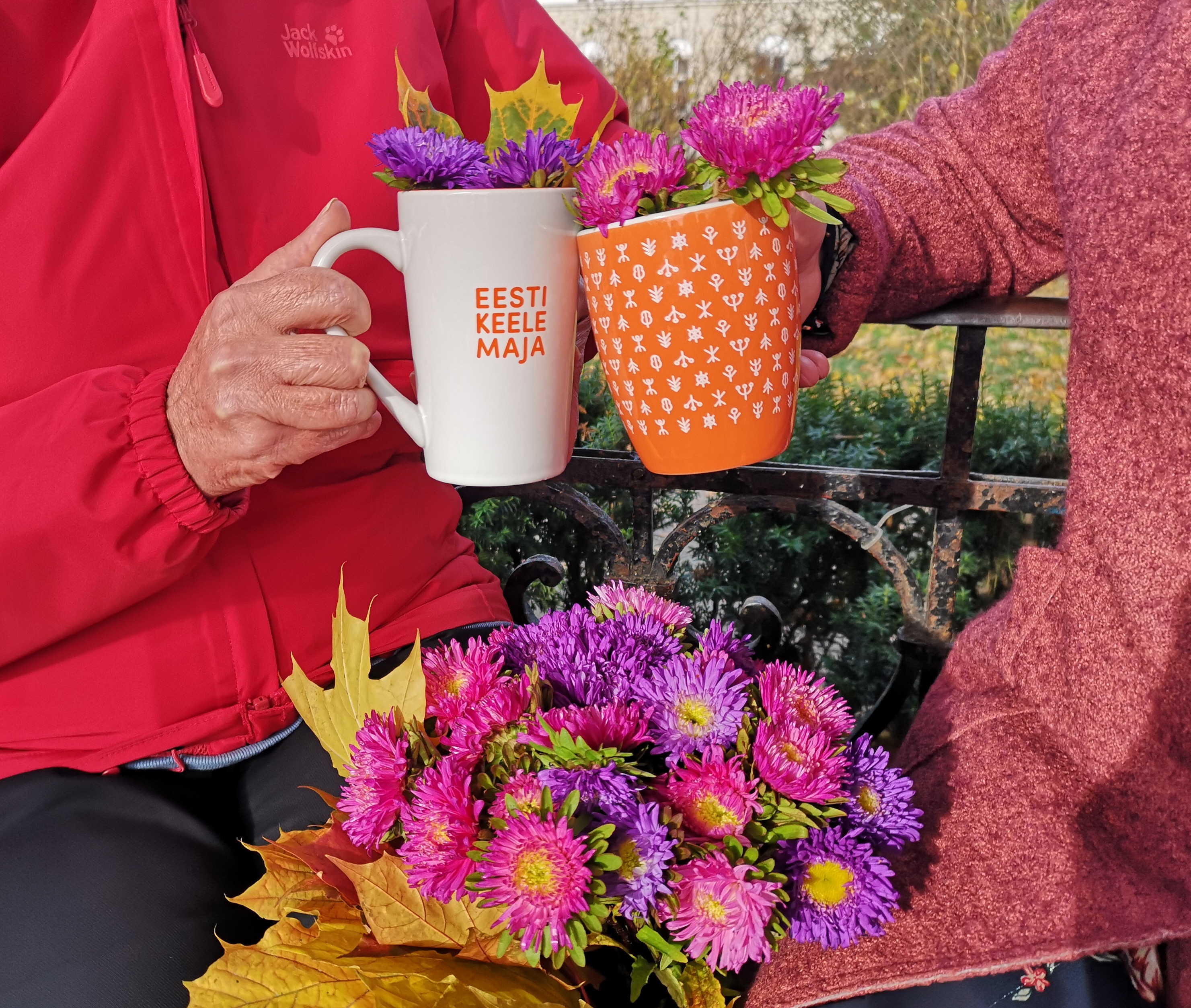 A lot of Estonian courses have already kicked off, but all those learning the language are welcome to take part in the events organised by the Estonian Language Centres in Tallinn and Narva that give you the chance to practise what you have already learnt.
A lot of Estonian courses have already kicked off, but all those learning the language are welcome to take part in the events organised by the Estonian Language Centres in Tallinn and Narva that give you the chance to practise what you have already learnt.
Bite-sized events you can sign up for include our language cafés and cultural studies courses.
In Narva, there are lots of fun and effective ways you can reinforce what you already know. For instance, you can join the tandem choir at the Estonian Language Centre, for whom music is every bit as important as language and culture. Although the choir only formed a year ago, they have done a lot in the last 12 months: rehearsing on Zoom and in person together in Narva; performing at the Viru Folk festival and at a song festival in Narva; and coming up with their own rap song!
Presentation practice classes give participants the chance to hone their public speaking skills by talking on a topic that means something to them. The rest of the class listens closely and then discusses the topic with the speaker. You can sign up for these classes here. ‘Read > discuss > write’ is a media course offered by the Estonian Language Centre in Narva as part of which the participants talk about and compose texts on a range of media-related issues: various aspects of the work of journalists, ethics, demagoguery and entertainment. The centre has also been running an online pronunciation course for a number of years. On it, the participants get together once a week to practise various sounds and other key aspects of the pronunciation of Estonian. This mainly takes place using the ‘listen and repeat’ method, but also by singing, reading poems and learning about the physiology of pronunciation.
Fun monthly events are held in Narva, Kohtla-Järve and Jõhvi to develop people’s spoken Estonian, such as film and game nights, meet-and-greets with guests and workshops.
The Estonian Language Centre in Tallinn is continuing to offer now-traditional conversation classes for beginners and intermediate learners and parents of students in language immersion schools, as well as Old Town tours with Jaak Juske, architectural tours and forest hiking games. New activities include calligraphy workshops, creative writing and literary therapy workshops led by Berit Kaschan and a glimpse into the magical world of the Estonia Theatre, with backstage access, meet-and-greets with stars of ballet and opera and conversation groups.
In order to maintain and expand its cooperation network, the Estonian Language Centre in Tallinn is continuing to work with Tallinn Folk High School, the Estonian Museum of Architecture, Pärnu Central Library, the Mary Magdalene Guild and the Estonian Institute. These have been joined as new partners by the Estonian National Opera, the ‘Teeme Teistmoodi’ handicrafts centre and Tallinn Creative Incubator. The centre has also expanded its regional reach, now offering activities in Paldiski as well as Pärnu County.
As part of the AMIF2020-8 project ‘Estonian language studies for third-country citizens in Estonia’, new B1 courses are set to launch in November 2021 and February 2022. Registration for the courses is via the consultation centre (e-mail info@integratsiooniinfo.ee or call the free hotline 800 9999).
Range of resources released with which to practise Estonian
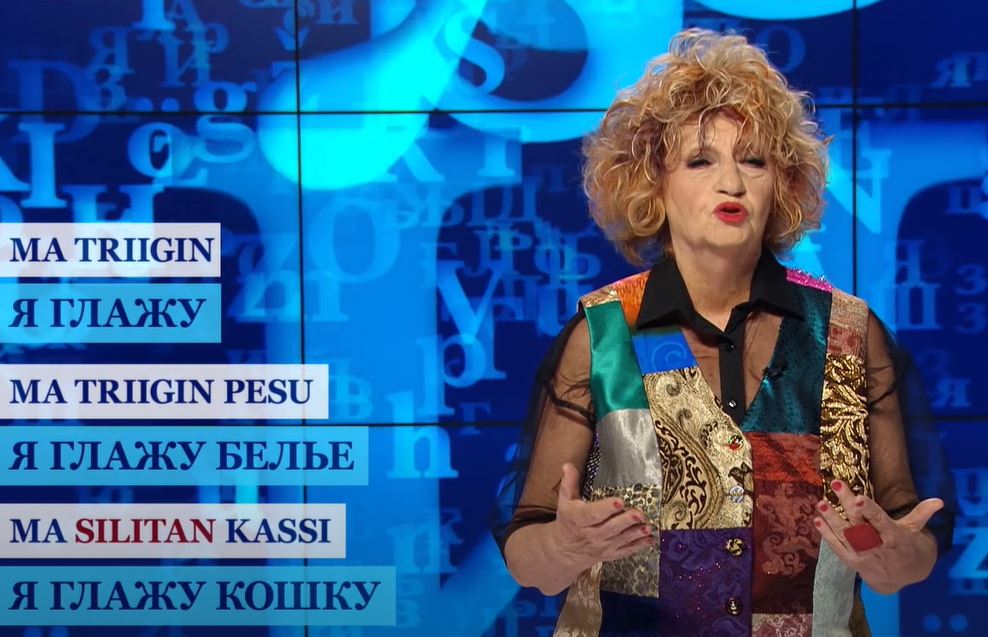 The Integration Foundation, working with the Estonian Language Centres in Tallinn and Narva, has produced a range of resources with which students can independently practise their Estonian: several videos and a special handbook.
The Integration Foundation, working with the Estonian Language Centres in Tallinn and Narva, has produced a range of resources with which students can independently practise their Estonian: several videos and a special handbook.
Helena Metslang’s ‘Handbook for independent language-learning: Study skills and the language environment’ was compiled for adult learners to use after they have completed a course so as to help them retain what they have learned and continue their studies in their own time. It includes practical tips for planning studies, maintaining motivation and making more effective use of learning opportunities. It has been published in Estonian, English and Russian and can be downloaded in PDF format here.
In partnership with the Estonian national broadcaster ERR, 15 Russian-language videos have been produced in which Jelena Skulskaja introduces words and phrases that are easily mistaken, often with hilarious results.
Videos showcasing different approaches to language-learning were also released ahead of the KU-KУ Estonian language fair, providing practical tips on studying Estonian. The videos can be found here.
State agencies to open their doors once again to work-experience students with mother tongues other than Estonian
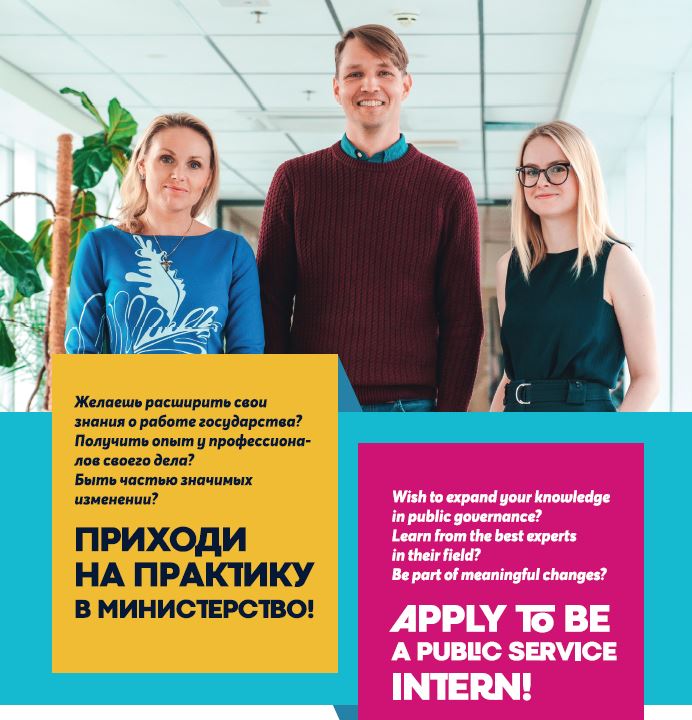 A work placement programme being offered by the Integration Foundation in cooperation with the Ministry of Culture and the Ministry of Finance is set to launch in November whose aim is to showcase employment opportunities in state agencies to students with mother tongues other than Estonian and to encourage them to apply for positions in the public sector in the future.
A work placement programme being offered by the Integration Foundation in cooperation with the Ministry of Culture and the Ministry of Finance is set to launch in November whose aim is to showcase employment opportunities in state agencies to students with mother tongues other than Estonian and to encourage them to apply for positions in the public sector in the future.
The programme is being run for the second time. Earlier this year, a total of 13 students with Russian, German and Turkish as their mother tongues discovered what it was like to work in the Government Office, the Office of the Chancellor of Justice and a variety of ministries.
Integration Foundation publishes ‘Coming Back in 2021’ handbook on returning to Estonia
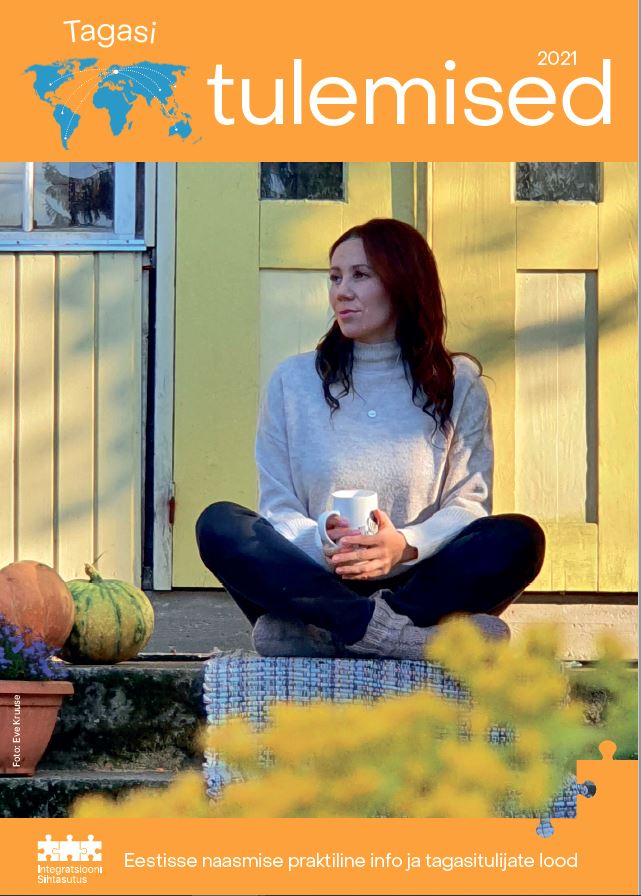 Close to 7000 people with Estonian roots who have been away from the country for anywhere from a few years to as long as they can remember return to their homeland every year. They bring back with them not only the knowledge they have gained, but also a broader outlook on the world. Over the years the Integration Foundation has supported many of them in settling back into life in Estonia – and now has put all of this together in a useful handbook.
Close to 7000 people with Estonian roots who have been away from the country for anywhere from a few years to as long as they can remember return to their homeland every year. They bring back with them not only the knowledge they have gained, but also a broader outlook on the world. Over the years the Integration Foundation has supported many of them in settling back into life in Estonia – and now has put all of this together in a useful handbook.
Colourful personal accounts present a cross-section of what returning to the country and adapting to life here involves. One of those whose stories are included is Elin, who describes the handbook as a trusted friend. “It’s like someone who comes to meet you at the airport and gives you a hug and whispers in your ear that you don’t have to worry anymore: they’ll look after you until you can manage on your own!” she smiles.
The handbook also provides advice on where and how to start brushing up on your Estonian, how to find suitable work, where to find school places for your kids and doctor’s services for your family, how to apply for an ID card and much more.
Information on returning to Estonia can be found on our website and click HERE to browse or download the handbook.
Online Citizen’s Day quiz to be held from 15-28 November
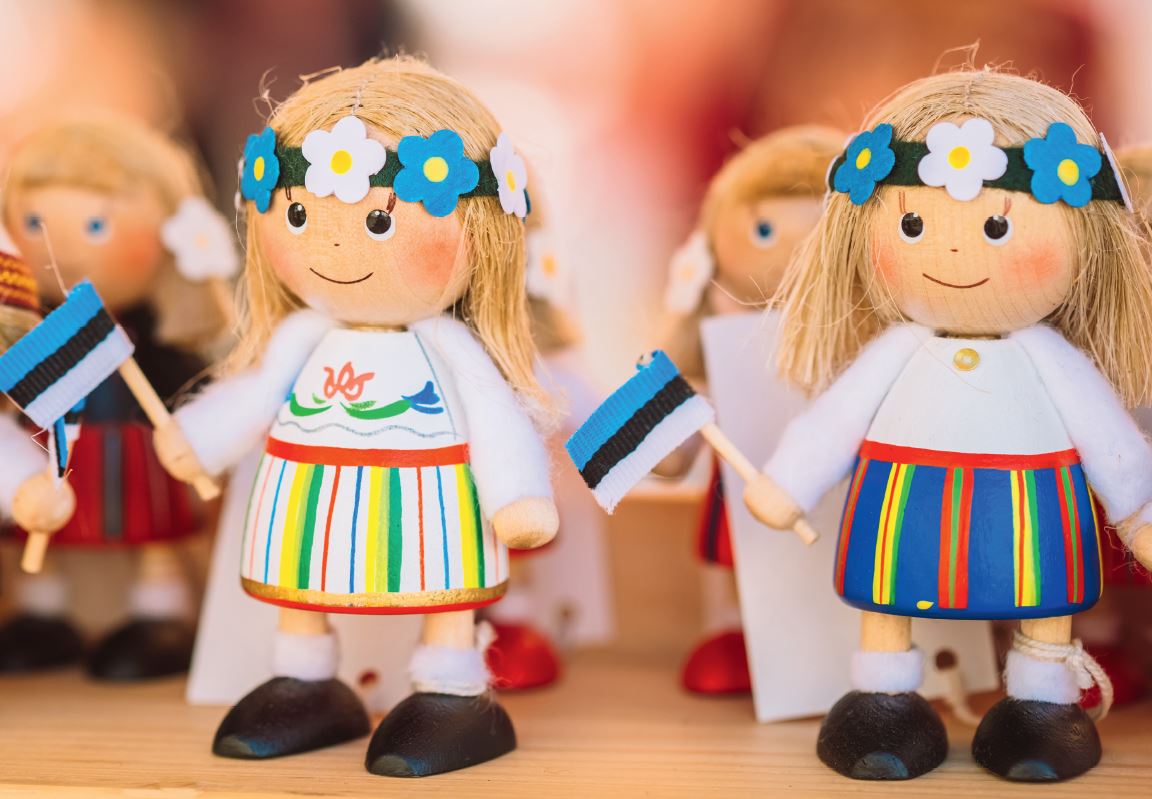 Citizens Day is marked on 26 November, and this year the Integration Foundation is once again organising an exciting online quiz about Estonia’s recent past in honour of the occasion. It will be taking place from 15-28 November, with a focus on interesting events and life in Estonia.
Citizens Day is marked on 26 November, and this year the Integration Foundation is once again organising an exciting online quiz about Estonia’s recent past in honour of the occasion. It will be taking place from 15-28 November, with a focus on interesting events and life in Estonia.
The quiz can be taken on the Integration Foundation website. It will comprise 50 questions in Estonian, with a time limit of 60 minutes. The questions will go live on 15 November.
The Integration Foundation is arranging the quiz for the 19th time this year. Organisation of the Citizens Day online quiz is supported by the Ministry of Culture.
Cooperation Days generate ideas on getting young people involved in activities
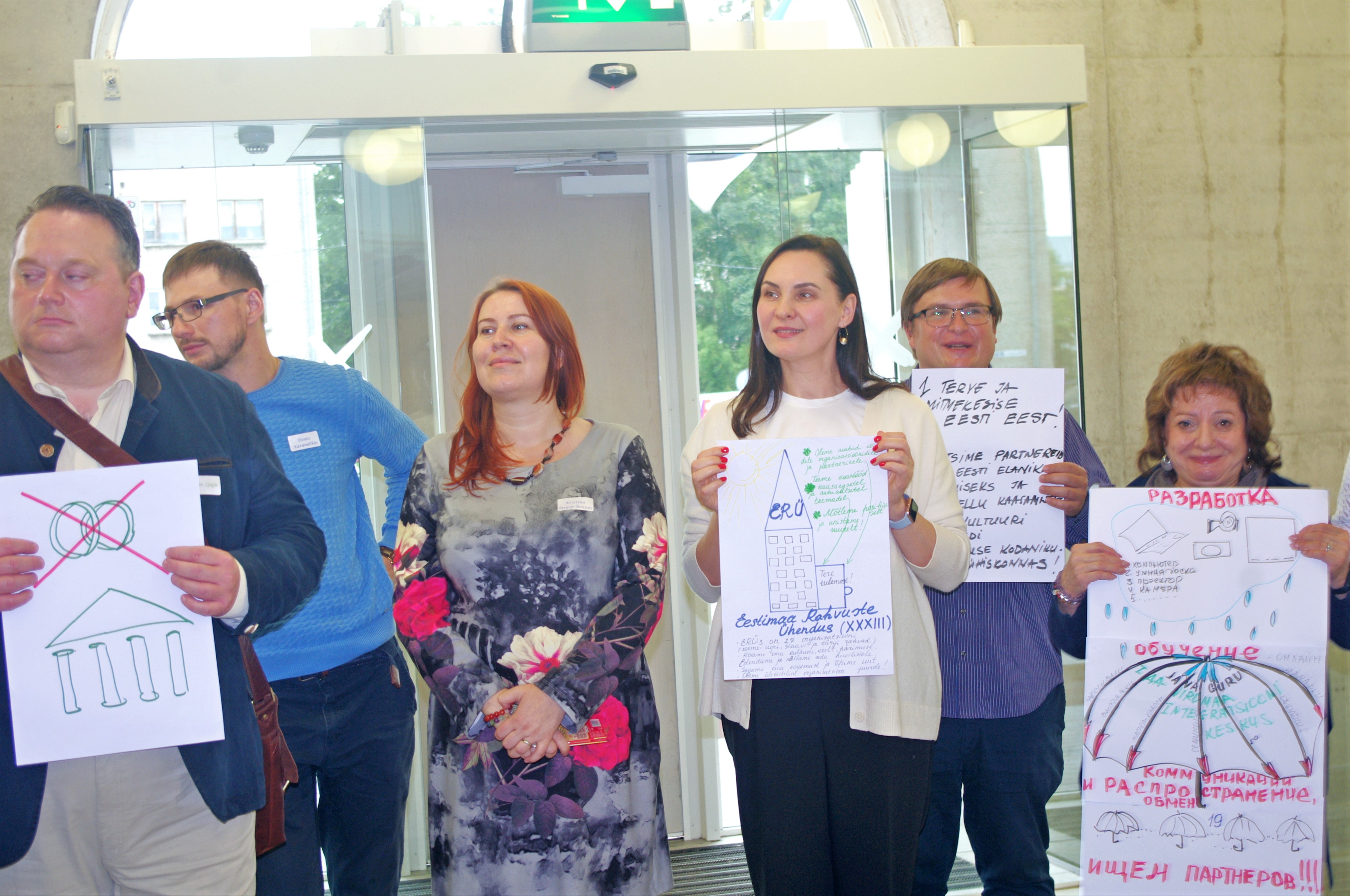 Cooperation Days were held in Narva on 27 & 28 August, bringing together representatives of museums, Harju County NGOs and the umbrella organisations of national minority cultural associations. The aim of the event was to find new partners, come up with fresh ideas and foster cooperation among the participants.
Cooperation Days were held in Narva on 27 & 28 August, bringing together representatives of museums, Harju County NGOs and the umbrella organisations of national minority cultural associations. The aim of the event was to find new partners, come up with fresh ideas and foster cooperation among the participants.
Organised jointly by the Integration Foundation, the Ministry of Culture and the Harju Enterprise and Development Centre Foundation, the event was attended by 59 people who worked in teams to come up with ways of getting young people involved in their activities. The event culminated in the three best ideas being selected, which the teams will now set about implementing.
One of these projects, ‘Sunflower’, was devised by young people themselves. A conversation group will be established to encourage creative development among youngsters and to embolden them to speak up. They will be meeting a total of eight times. There will be creative workshops, art therapy, 3D designing and more, all of which will foster their creativity and communication skills. The project will end with a mini-ball.
As part of another selected project, ‘Borders and Partners’, there will be two two-day study trips: one for representatives of villages in Rae municipality to Narva and Sillamäe; and the other for participants from Ida-Viru County to the Rae municipality villages. A range of events will take place in and around Rae municipality, including an evening spent together in the village of Kurna, an introduction to village life in Viskla and an excursion to Anija Manor. The trip to Ida-Viru County will showcase cooperation projects between people from different cultural and national backgrounds and how their cultures and histories have intertwined over the centuries. The participants will experience for themselves cohesion between generations and gain ideas on preserving their own cultural heritage and traditions in the midst of another culture.
The third project, ‘National Games Day’, has been designed with young people in mind and is set to take place at the Open Air Museum in Tallinn. The participants will take part in both modern and traditional games played by Georgian, Estonian, Ersa, Moksha, Seto, Ukrainian and Russian people.
The Cooperation Days were financed from the budget of the Ministry of Culture and via the ‘Integration-based cooperation activities’ action of the European Social Fund project ‘Terms and conditions of the provision of support for activities promoting integration in Estonian society’.
Estonian-language teachers from Ida-Viru County to take part in Merle Karusoo’s play ‘Who Am I?’
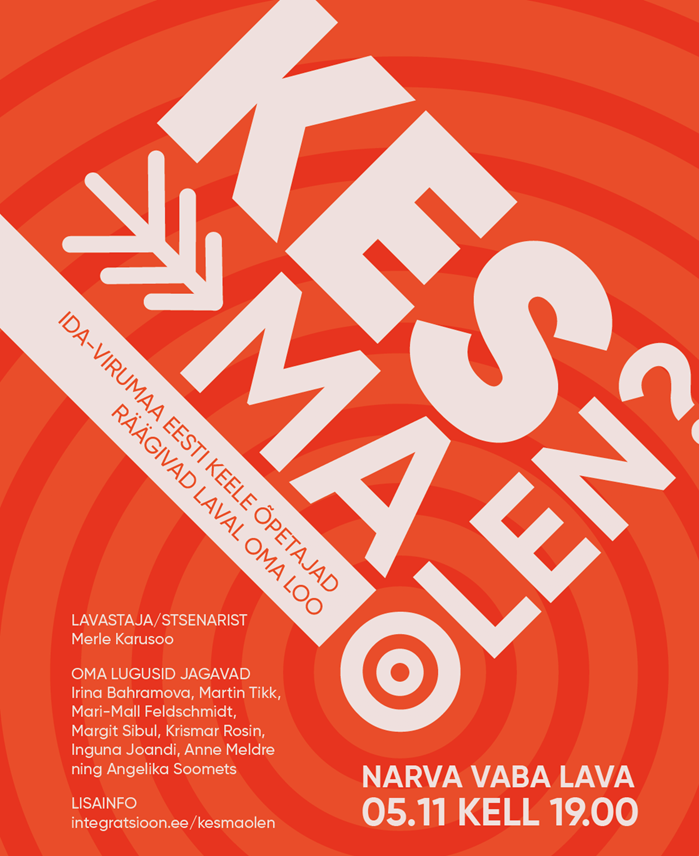 Renowned Estonian director and playwright Merle Karusoo, in cooperation with the Integration Foundation and the Vaba Lava theatre in Narva, is staging a unique play called ‘Who Am I?’ that brings together the stories of Estonian-language teachers from Ida-Viru County and throws open the doors of the world of teaching.
Renowned Estonian director and playwright Merle Karusoo, in cooperation with the Integration Foundation and the Vaba Lava theatre in Narva, is staging a unique play called ‘Who Am I?’ that brings together the stories of Estonian-language teachers from Ida-Viru County and throws open the doors of the world of teaching.
The project gained its name more than 20 years ago when Karusoo was working with children in the region to help them understand where they were from and how their parents and grandparents ended up in Estonia. Now the avid collector of biographies has brought together the real-life stories of teachers in the county. “It’s not easy being a teacher of Estonian,” she says. “I knew that already. But now I know more about the people who are doing this important work – important to the country as a whole. And now you’ll have the chance to get to know them as well.”
The aim of the project is to make people aware of their roots and the choices they make in life: for them to get to know themselves. It also focuses on the specific problems the participants face in their profession. Karusoo got together with the teachers and prompted them to share their life experiences, warts and all. Teachers from the Estonian Language Centre in Narva are also taking part in the project.
‘Who Am I?’ is set to premiere in the studio hall of the Vaba Lava theatre in Narva at 19:00 on 5 November 2021. Directed and scripted by Merle Karusoo, the play will feature teachers Irina Bahramova, Martin Tikk, Mari-Mall Feldschmidt, Margit Sibul, Krismar Rosin, Inguna Joandi, Anne Meldre and Angelika Soomets. For more information, see integratsioon.ee/kesmaolen.
The number of places is limited. Register here: https://forms.gle/xDgr6HJgJHQ8o6qE6
Language-learners ‘gift-rap’ their birthday present for the Estonian Language Centre in Narva
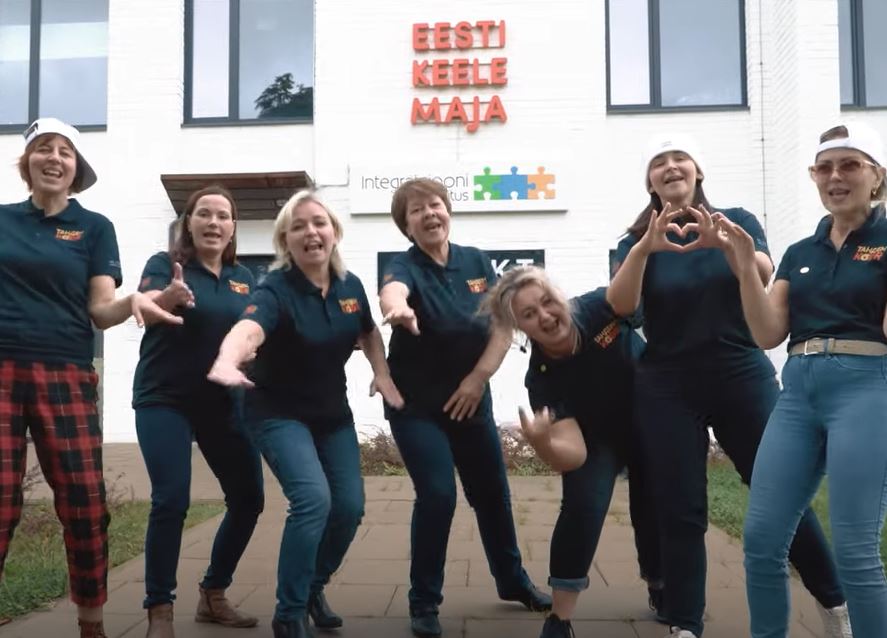 On 1 October we marked two years since the main office of the Integration Foundation and its second Estonian Language Centre opened their doors in Narva. Cool white on the outside but warm and cosy on the inside, the building is home to a friendly team of workers and some wonderful students. Together they worked on a fun rap to mark the centre’s birthday.
On 1 October we marked two years since the main office of the Integration Foundation and its second Estonian Language Centre opened their doors in Narva. Cool white on the outside but warm and cosy on the inside, the building is home to a friendly team of workers and some wonderful students. Together they worked on a fun rap to mark the centre’s birthday.
Students who were also part of the tandem choir were the driving force behind the rap’s creation. The choir, which is designed to unite studies of language and culture, has almost 40 members of different nationalities, most hailing from Ida-Viru County. Learning songs together allows them all to practise both Estonian and Russian. The choir will be launching into its second season in November, when new male singers are welcome to join.
Open calls for tenders and calls for proposals
October sees the launch of the ‘Ordering Estonian language training services’ procurement, while the ‘Activity support for national minority umbrella organisations’ and ‘Support programme for projects instigated by foreign-Estonian communities’ procurements are set to be launched in November.
The first application rounds opening in the new are the now traditional ‘Payment of support for returning to Estonia’, ‘Support for foreign-Estonian cultural associations’, ‘Cultural and sports activities promoting integration’, ‘Support for national minority cultural associations’ and ‘Activity support for family stay partner organisations’.
Information on procurements and application rounds that are currently open is available on the website of the Integration Foundation in Estonian.
Our calendar
Information on events that take place by our organisation, participation or support, can be found in the calendar published on our website.
Our news
You can read the latest announcements of the Integration Foundation in the news section of our website and on the Facebook page of the Integration Foundation or the Estonian Language House.
